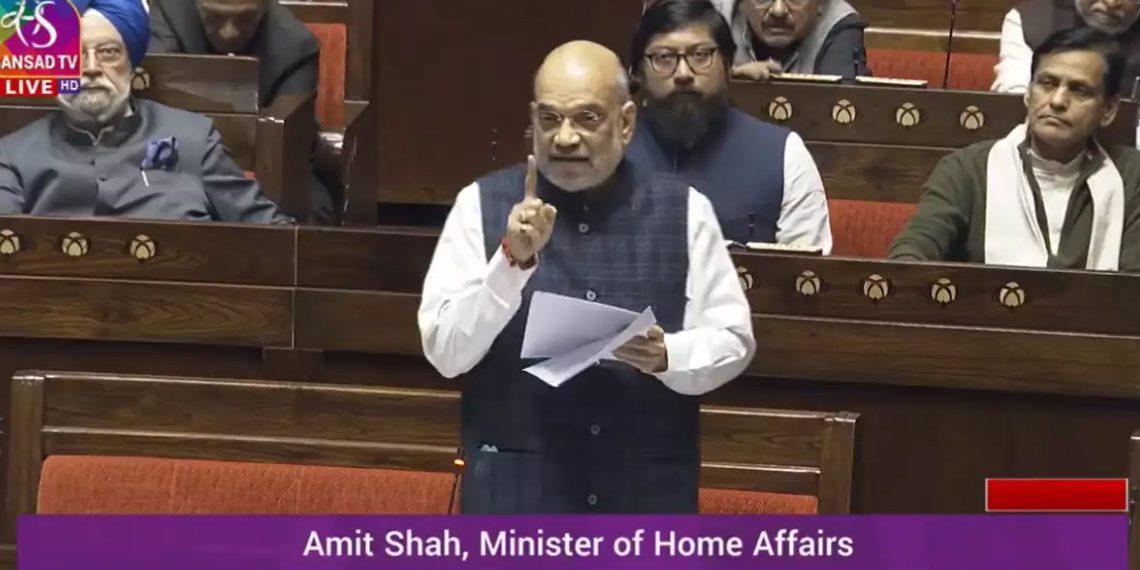The Union Home and Cooperation Minister recently elaborated on a series of amendments aimed at enhancing transparency, preventing financial irregularities, and ensuring accountability in multi-state cooperative societies. Shah also touched upon PACS, Fisheries Co-op & CPGRAMS in his reply and traced the steps taken by the Ministry of Cooperation in these fields.
Addressing a query in the Rajya Sabha, the Minister emphasized that the Central Government would establish prudential norms, such as liquidity and exposure limits, for societies involved in thrift and credit activities to safeguard financial stability and member interests.
A significant step towards transparency involves laying the audit reports of apex multi-state cooperative societies in Parliament. Measures to prevent nepotism and favoritism have also been introduced, including barring directors from participating in decisions where they or their relatives have a vested interest.
Governance reforms include new grounds for disqualification of directors to curb repeated acts of fraud, omission, or financial misconduct. To ensure ethical practices and financial discipline, societies are now required to constitute audit and ethics committees.
The Minister highlighted criteria for the appointment of Chief Executive Officers (CEOs), along with mandating a quorum for board meetings to foster democratic decision-making. Investment provisions have been updated, eliminating outdated colonial-era securities and adopting safer financial practices.
Additionally, the Central Registrar has been empowered to conduct inquiries into fraudulent activities, with provisions for winding up societies found to have been registered through fraud or misrepresentation, following a fair hearing process.
To discourage misuse of collective resources, the minimum expulsion period for members involved in activities against societal interests has been increased from one year to three years. Furthermore, institutions where members or their relatives hold a majority of equity shares will no longer be considered subsidiary institutions, preventing the concentration of resources in the hands of a select few.
The introduction of a Cooperative Election Authority ensures the timely and impartial conduct of elections, while a Cooperative Ombudsman will address member grievances effectively. Societies will also designate Information Officers to enhance transparency and accessibility for members.
The Minister revealed that 6,525 new Primary Agricultural Credit Societies (PACS) were registered across India between FY 2020-21 and FY 2024-25, as per the National Cooperative Database. The government approved a plan in February 2023 to strengthen the cooperative movement and expand its reach to the grassroots level. This plan involves the establishment of new PACS, dairy, and fishery cooperatives to cover all panchayats and villages within five years.
The initiative aims to align with existing schemes like the Dairy Infrastructure Development Fund, the National Programme for Dairy Development, and the PM Matsya Sampada Yojana. This effort is supported by institutions such as NABARD, the NDDB, the NFDB, and state governments.
Under the plan, 439 new Fishery Cooperative Societies have been registered nationwide, including 67 in Telangana. The government allocated Rs 20,050 crore for the Pradhan Mantri Matsya Sampada Yojana (PMMSY) for the period FY 2020-21 to FY 2024-25 and launched the PM Matsya Kisan Samridhi Sah-Yojana with an outlay of Rs 6,000 crore for FY 2023-24 to FY 2026-27 to support fishery cooperatives.
The Minister also addressed the efficiency of the Centralized Public Grievance Redressal and Monitoring System (CPGRAMS), noting that over 74,000 grievances have been resolved since its inception. The Ministry of Cooperation ranked seventh among government departments in grievance redressal, with an average resolution time of six days.
Reforms to CPGRAMS include monitoring dashboards, capacity building under the Sevottam Scheme, universalization of CPGRAMS 7.0 for automated grievance routing, integration with state portals, feedback call centers, and the use of common service centers for inclusivity. These measures aim to create a more responsive and citizen-centric grievance redressal system.













































